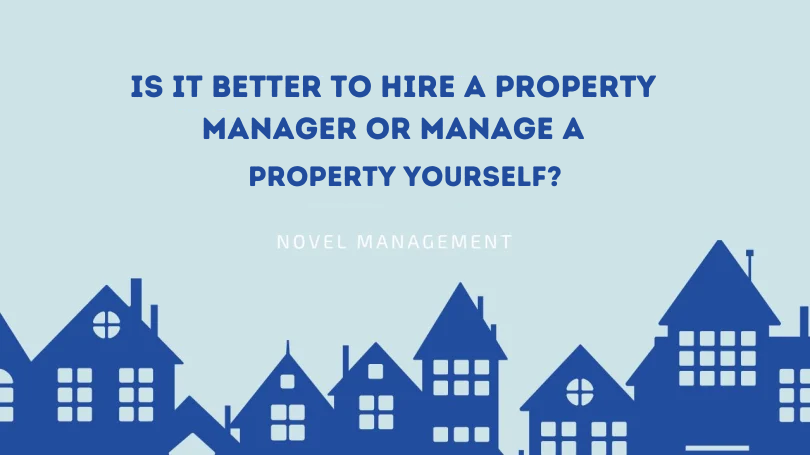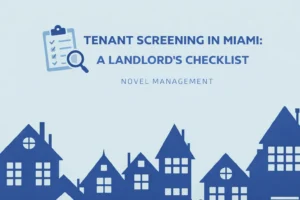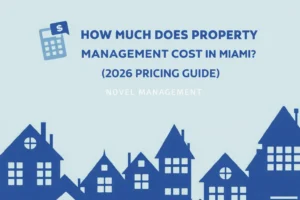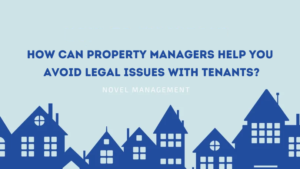As a property owner, one of the biggest decisions you will face is whether to hire a property manager or manage your property yourself. While both options have their own set of advantages and disadvantages, it ultimately comes down to what works best for your individual situation and priorities.
Hiring a property manager can provide many benefits, such as saving time and reducing stress by delegating tasks such as finding tenants, advertising vacancies, collecting rent, and handling maintenance requests.
In this article, we will explore the pros and cons of hiring a property manager versus managing your property yourself. We will also discuss important considerations such as cost, time commitment, level of expertise required, and the potential impact on rental income and tenant satisfaction. So let’s dive in and find out if it is better to hire a property manager or manage a property yourself!
What is a Property Manager?
A property manager is a professional or company hired by property owners to oversee the day-to-day operations of their rental properties. Their responsibilities typically include marketing the property, screening and selecting tenants, handling lease agreements, collecting rent, coordinating maintenance and repairs, and addressing tenant concerns.
Property managers act as the intermediary between landlords and tenants, ensuring the property is well-maintained and operating smoothly. They bring expertise and industry knowledge, particularly valuable for landlords who lack the time or experience needed to manage their properties effectively.
Property managers can handle single-family homes, multi-unit complexes, or commercial properties, often tailoring their services to meet the unique needs of the property owner. Employing a property manager can simplify property ownership and enhance tenant satisfaction.
Is it Better to Hire a Property Manager or Manage Your Property Yourself?
While there are many advantages to hiring a property manager, there are also some drawbacks that must be considered. The decision ultimately depends on individual circumstances and priorities.
Advantages of Managing Your Own Property
Some benefits of self-managing a rental property include:
Cost Savings
Managing your own property can result in significant cost savings. By avoiding property management fees, which can range from 8-12% of your rental income, you retain more of the profits. This is particularly beneficial for property owners operating on a tight budget or those with only one or two properties.
Handling the day-to-day operations yourself allows you to control expenses directly. Whether it’s arranging for repairs or strategically choosing service providers, self-management ensures that your spending is efficient and tailored to your property’s specific needs.
Control Over Decisions
Self-managing your property gives you complete control over all aspects of its operation. You can select tenants that align with your preferences, set rental rates according to your own market analysis, and decide how to approach maintenance issues without needing approval from a third party.
Managing the property yourself can help you better understand its day-to-day challenges and opportunities. By staying directly involved, you can create strategies tailored to your property’s unique requirements, leading to a potentially more responsive and efficient management process.
Personal Touch
When you manage your property directly, you can form closer relationships with your tenants. This personal touch not only builds trust but can also improve tenant retention rates. Tenants are more likely to renew their leases when they feel valued and know they have direct communication with the property owner.
Having a personal connection with your tenants also allows you to address their concerns more effectively. By being accessible and attentive, you can foster a sense of community and ensure that your property meets their expectations, which can ultimately enhance their satisfaction and loyalty.
Advantages of Hiring a Property Manager
On the other hand, hiring a property manager offers several advantages, including:
Time-saving
Managing a property can be time-consuming, particularly if you have multiple properties or a full-time job. By delegating tasks to a property manager, you can free up your time to focus on other important aspects of your life.
Hiring a property manager also means that they will handle all emergencies and issues that may arise outside of business hours. This can save you the hassle of being constantly on-call for tenant concerns and allow you to enjoy your free time without interruptions.
Expertise
If you are new to property ownership, hiring a property manager with experience and industry knowledge can be highly beneficial. They understand the market trends, legal requirements, and best practices for managing rental properties effectively. This expertise can save you from costly mistakes and help maximize your profits.
A property manager may also have a network of trusted contractors and service providers, helping to ensure that maintenance and repairs are handled promptly and efficiently. This can prevent potential issues from escalating into larger, more expensive problems in the future.
Legal Protection
Property managers are well-versed in landlord-tenant laws and regulations, ensuring that all aspects of the lease agreement comply with legal requirements. This can protect you from potential lawsuits or disputes with tenants.
Moreover, if any legal issues do arise, a property manager knows how to handle them effectively, minimizing stress and potential financial losses for the property owner.
Which Option is Right for You?
Ultimately, the decision to hire a property manager or self-manage your rental property depends on your unique situation and priorities. If you value cost savings, control over decisions, and building personal connections with tenants, managing your property yourself may be the best option. However, if you prioritize time-saving, expertise, and legal protection, hiring a property manager can be highly beneficial.
Consider evaluating the pros and cons of each option carefully before making a decision. Additionally, consult with other property owners or seek advice from professionals in the industry to gain further insights into what may work best for your specific circumstances.
How to find a Reliable Property Manager
If you do decide to hire a property manager, it is crucial to find a reliable and trustworthy one. Here are some tips on how to find the right property manager for your rental property:
- Do Your Research – Start by researching different property management companies or individuals in your area. Look at their websites, read reviews from other landlords or tenants, and consider asking for recommendations from trusted sources.
- Interview Multiple Candidates – Don’t settle on the first property manager you come across. Take the time to interview multiple candidates and ask them about their experience, services offered, fees, and any potential red flags.
- Check Credentials – Make sure the property manager you are considering is licensed and has adequate insurance coverage. You can also check with professional organizations such as the National Association of Residential Property Managers (NARPM) to verify their credentials.
- Ask for References – Ask for references from current or previous clients of the property manager. This can give you valuable insights into their reputation, communication style, and overall performance.
- Evaluate their Communication Skills – Effective communication is crucial in managing a rental property. Make sure that the property manager you choose is responsive, clear, and professional in their communication with both tenants and landlords.
- Consider Their Fees – While cost should not be your only deciding factor, it is essential to understand the fees and services included in a property manager’s contract. Make sure you are comfortable with the cost and that it aligns with your budget.
By following these tips, you can find a reliable and competent property manager who can help make your experience as a landlord smoother and more profitable.
Responsibilities of a Property Manager

The responsibilities of a property manager can vary depending on the terms outlined in their contract with the landlord. However, some common tasks that most property managers handle include:
Marketing and Advertising: Attracting potential tenants through various marketing strategies to minimize vacancy periods.
Tenant Screening and Selection: Thoroughly screening potential tenants to find reliable and responsible renters for the property.
Lease Management: Creating and enforcing lease agreements, collecting rent payments, handling lease renewals or terminations, and managing evictions if necessary.
Maintenance and Repairs: Overseeing regular maintenance tasks, scheduling repairs when needed, and ensuring all work is completed satisfactorily.
Financial Management: Keeping track of income and expenses, creating financial reports for the landlord, and handling any necessary accounting tasks.
Tenant Relations: Addressing tenant concerns and ensuring positive relationships between tenants and landlords.
By delegating these responsibilities to a property manager, landlords can save time, reduce stress, and maximize their profits.
FAQs
What are the pros and cons of self-managing your property?
Self-management allows real estate investors to save on property management fees and have direct control over rent collection and tenant relations. However, it requires significant time and money investment, along with expertise in managing your property.
Why do real estate investors choose professional property management companies?
Professional property management companies handle tasks like tenant screening, rent collection, and maintenance, saving real estate investors time and reducing stress, while ensuring their investment property is managed efficiently.
What are the benefits of hiring a reliable property management company?
A reliable property management company provides expert services, including legal compliance, routine maintenance, and rent collection, ensuring the property is well-managed and maximizing returns for property owners.
How do rental property management companies help save time and money?
Rental property management companies streamline operations like tenant placement, rent collection, and maintenance, allowing property owners to focus on other ventures while avoiding costly mistakes in property management.
What factors should you consider when choosing professional property management?
When choosing professional property management, consider the company’s reputation, property management fees, services offered, and experience with investment property types in your local market.
Conclusion
Hiring a property manager or self-managing your rental property are both valid options, and the best one for you will depend on your priorities and preferences. Whichever route you choose, it is crucial to do your research, consider all factors, and make an informed decision. A successful landlord-tenant relationship relies on effective communication, trust, and professionalism, so take the time to find the right property manager who can help you achieve your goals as a rental property owner.
If you’re in need of a reliable and professional property manager, look no further than Novel Management. We have the experience and expertise to help you achieve success as a landlord. Contact us today to learn more!




